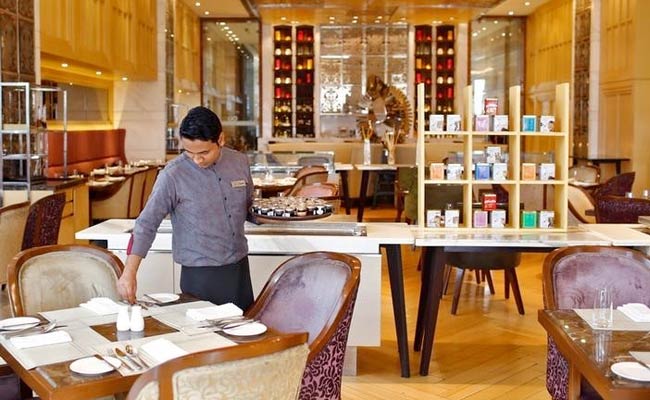700 Tihar Jail Inmates Hired By Hotels, 1,200 To Get Hospital Jobs Soon


700 inmates have got jobs in the hotel industry, said jail chief. (Representational Image)
New Delhi:
Around 700 inmates are employed and 1,200 more are presently getting training to work in various sectors after coming out of jail, Tihar’s Director General (prisons) Sanjay Baniwal said.
In an interaction with Press Trust of India editors at its headquarters on Monday, Mr Baniwal, a 1989 batch IPS officer, said that he is happy to see inmates, who get employed after spending their jail term.
Mr Beniwal, who had a stint of Chandigarh DGP, has been posted as Tihar DG since November 2022.
Replying to a question over jail reforms during his tenure in Tihar, Mr Baniwal said, “We have started skill development programme with the help of Urban Development Ministry inside the prisons. Under this programme, around 700 inmates have got the job in hotel industry and 1,200 are getting training to get the job in hospitals.”
According to jail officials, an infrastructure is provided inside the prisons for training under-trial prisoners (UTP). The programme was launched in early 2023.
Mr Baniwal said skilling and empowering inmates is something that makes them worth.
“I saw the smile and twinkle in their eyes when they got their certificates and offer letters to work outside,” he said.
Replying to a question on overcrowding in Tihar jail, which has been witnessing 20,000 inmates against its sanctioned strength of 10,000, Mr Baniwal said that making more jail is not a solution.
Delhi has three prison complexes – Tihar, Rohini and Mandoli – and all of them comprise central jails.
May be we can look for other options or better ways of punishing, at least who are delinquent, he said.
Citing an example, he said that a young man was recently caught for stealing Rs 300 in pick pocketing and was brought to Tihar. He stayed here for five months before getting bail.
“I am spending Rs 800 per inmate/per day which costs us around Rs 24,000 per month. For that 300 rupees theft punishment I spent your money (exchequer) costing about Rs 1,20,000 in five months. Is it right? That is the question we need to ask,” Mr Baniwal said.
The proposed jail in Narela, Delhi, will cost us about Rs 170 crore for odd 250 inmates, which is an expensive affair, he said.
The Tihar prisons chief said the current model provision act of jail does provide the power to put the anklets for tracking the movements of those inmates who are released on furlough.
“Why can’t we do for those who are sent to Tihar like Arnesh Kumar judgement does speak about not to arrest people for certain offences. You can certainly, geofence their movement within their home, court or work places. That way you are keeping the person more productive and less burdened. But this is my personal view, may be I am wrong,” he said.
On privatising the jail like in foreign counties, Mr Baniwal said that despite privatisation, the US jails are pretty overcrowded.
“The number of arrest per lakh people in the US is far more than in India. Privatising the jail is all depends on the situation of the country and how it is governed,” he said.
Talking about facilities and infrastructure in jail, Mr Baniwal said under “correctional administration”, the officials work very hard to change inmate’s emotional footprint and mental vibrations.
“We run spirituality courses, meditation and targetted exercises for inmates, where they are dragged by force but by end with guilts what the did in the past. There are various examples I have where they write about their mistakes and say they will never commit any crime whenever go out of jail,” he said.
“I am planning to start an ‘after release care centre’ where we will follow them up after they come out,” he said.
Mr Baniwal said the inmates do celebrate every festival and participate in national events inside the prisons so that they can’t go away from reality.
“We try to normalise their life as much as possible. Many people have no visitor as their family members live far, we have a facility called ‘sparsh scheme’ where we hug them and give gifts on occasions,” he said.
Mr Baniwal said that he meets the inmates and listens to their problems and also tries to solve them.
(Except for the headline, this story has not been edited by NDTV staff and is published from a syndicated feed.)

